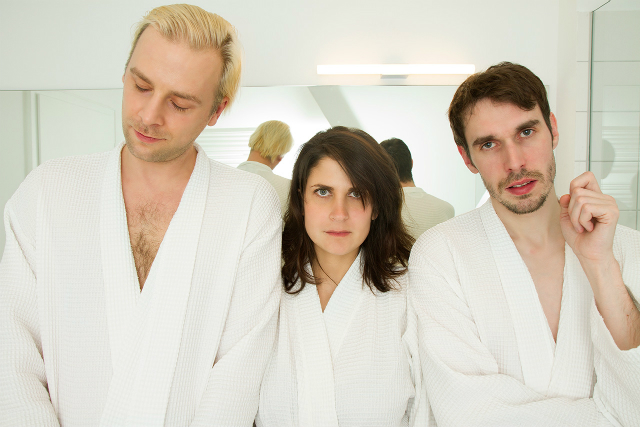Good news for internet artists. Schlosspost, an online platform for Stuttgart’s Akademie Schloss Solitude, is planning to extend the public foundation’s international artist residency program. The extension will coincide with the launch of their own online residency program. Acting as a sort of “virtual” Akademie, Schlosspost will be awarding the residencies several times a year, offering artists a micro-grant and online promotion of their projects.
The first Schlosspost web residencies will be curated by Netro, a Berlin web agency headed by artists Jana Lange, Ole Fach and Kim Asendorf. The trio are currently in the midst of a web development/design fellowship as part of the Solitude’s online programme, and have determined the “decentralization of internet art” as the residency’s set topic.
Given the nature of Netro’s wildly popular projects — from the satirical Gay Check Online website to a parasite game inside Google Street View — it comes as no surprise that this topic appealed to them. “Who wants to post on the same platform as Donald Trump?” queries the residency’s call, which also requests as part of its application process a “clickbait headline” along with the usual concept text and short bio for the residency’s project concept.
“Germany is behind the United States in terms of its internet culture, especially with regards to its impact on art,” says Kim Asendorf in an online chat interview with AFC, acknowledging that the residency is a promotion for Solitude’s sprawling network of past and present residents. In evoking Trump, Netro is tapping into a current European concern: “The government in England is discussing his ban,” says Asendorf. “We follow your culture with great interest. America is super inspiring and entertaining but also frightening and influential.”
Like the increasing workplace trend of the tele-commute and remote working, the virtual residency has gained cache in the past couple years as yet another online exhibition-making opportunity for artists with a web-based practice. Opening Times, a UK digital art commissioning non-profit, has invited artists like Constant Dullaart and Nicolas Sassoon to participate in three-month long online residencies, providing production budget, tech and crit support.
Others however, shape residencies more consciously on web native cultural forms, like blogging. Montreal’s Residency For Artists on Hiatus (RFAOH) has curated two rounds of web residencies where artists are encouraged to document online the suspension of their art practice and tasked to produce non-art for the duration of their residency. They are paid a small monthly stipend. “The project is more about exploring the limits or parameters of this notion of creativity and of where one’s art career begins and/or ends, and how much of that may be independent of the institutional pressures of the art world,” said RFAOH’s founders Shinobu Akimoto and Matthew Evans in a C Magazine interview. (According to RFAOH’s news section, however, it appears the residency is on hiatus itself.)
Another often-mentioned concept amongst online artists is the relationship between IRL and Virtual, which was greeted with skepticism by Netro. “Is an interview via Facebook a real interview? Is an email real mail? The constant comparison of ‘real life’ and online isn’t interesting anymore,” comments Kim Asendorf. “The word ‘web’ is far more important than the word residency.”
The Schlosspost’s web residency will be selected three residents for a four-week long residency, awarding $500 micro-grant to support the project’s development. Applications will be accepted between February 15-29, and the residency will commence March 7 to April 4. Further information regarding the application process can be found here.



Comments on this entry are closed.